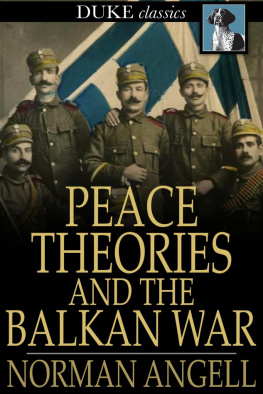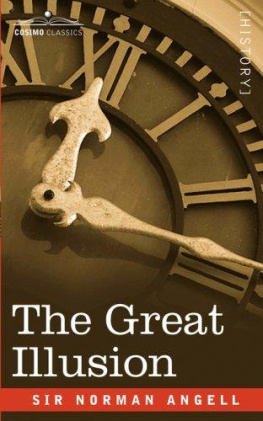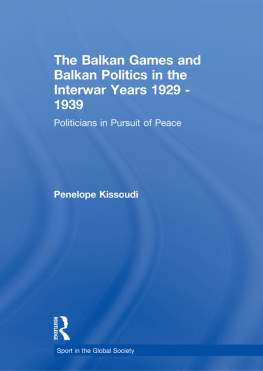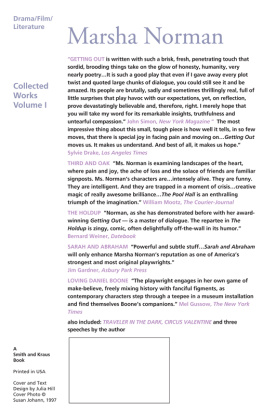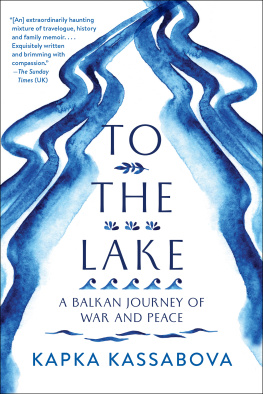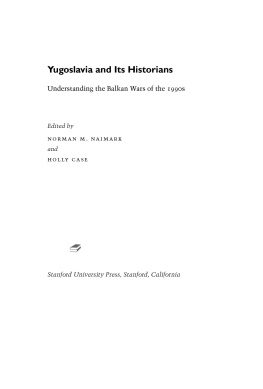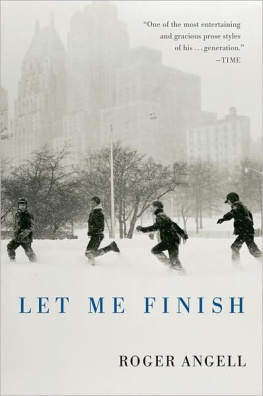PEACE THEORIES AND THE BALKAN WAR
* * *
NORMAN ANGELL
*
Peace Theories and the Balkan War
First published in 1912
ISBN 978-1-62013-510-5
Duke Classics
2014 Duke Classics and its licensors. All rights reserved.
While every effort has been used to ensure the accuracy and reliability of the information contained in this edition, Duke Classics does not assume liability or responsibility for any errors or omissions in this book. Duke Classics does not accept responsibility for loss suffered as a result of reliance upon the accuracy or currency of information contained in this book.
Contents
*
The Text of this Book
*
Whether we blame the belligerents or criticise the powers, or sit in sackcloth and ashes ourselves is absolutely of no consequence at the present moment....
We have sometimes been assured by persons who profess to know that the danger of war has become an illusion.... Well, here is a war which has broken out in spite of all that rulers and diplomatists could do to prevent it, a war in which the Press has had no part, a war which the whole force of the money power has been subtly and steadfastly directed to prevent, which has come upon us, not through the ignorance or credulity of the people, but, on the contrary, through their knowledge of their history and their destiny, and through their intense realisation of their wrongs and of their duties, as they conceived them, a war which from all these causes has burst upon us with all the force of a spontaneous explosion, and which in strife and destruction has carried all before it. Face to face with this manifestation, who is the man bold enough to say that force is never a remedy? Who is the man who is foolish enough to say that martial virtues do not play a vital part in the health and honour of every people? (Cheers.) Who is the man who is vain enough to suppose that the long antagonisms of history and of time can in all circumstances be adjusted by the smooth and superficial conventions of politicians and ambassadors?MR. WINSTON CHURCHILL at Sheffield.
Mr. Norman Angell's theory was one to enable the citizens of this country to sleep quietly, and to lull into false security the citizens of all great countries. That is undoubtedly the reason why he met with so much success.... It was a very comfortable theory for those nations which have grown rich and whose ideals and initiative have been sapped by over much prosperity. But the great delusion of Norman Angell, which led to the writing of "The Great Illusion," has been dispelled for ever by the Balkan League. In this connection it is of value to quote the words of Mr. Winston Churchill, which give very adequately the reality as opposed to theory.The Review of Reviews, from an article on "The Dbcle of Norman Angell."
And an odd score of like pronouncements from newspapers and public mensince the outbreak of the Balkan War.
The interrogations they imply have been put definitely in the firstchapter of this book; the replies to those questions summarised in thatchapter and elaborated in the others.
The "key" to this book and the summary of its arguments are containedin Chapter I.
CHAPTER I. - THE QUESTIONS AND THEIR ANSWER.
CHAPTER II. - "PEACE" AND "WAR" IN THE BALKANS.
"Peace" in the Balkans under the Turkish SystemThe inadequacy of ourtermsThe repulsion of the Turkish invasionThe Christian effort tobring the reign of force and conquest to an endThe difference betweenaction designed to settle relationship on force and counter actiondesigned to prevent such settlementThe force of the policeman and theforce of the brigandThe failure of conquest as exemplified by theTurkWill the Balkan peoples prove Pacifist or Bellicist; adopt theTurkish or the Christian System?
CHAPTER III. - ECONOMICS AND THE BALKAN WAR.
The "economic system" of the TurkThe Turkish "Trade of Conquest" as acause of this warRacial and Religious hatred of primitivesocietiesIndustrialism as a solventIts operation in EuropeBalkansgeographically remote from main drift of European economicdevelopmentThe false economies of the Powers as a cause of theirjealousies and quarrels This has prevented settlementWhat is the"economic motive"?Impossible to separate moral andmaterialNationality and the War System.
CHAPTER IV. - TURKISH IDEALS IN OUR POLITICAL THOUGHT.
This war and "the Turks of Britain and Prussia"The Anglo-Saxon andopposed idealsMr. C. Chesterton's case for "killing and being killed"as the best method of settling differencesIts application to CivilConflictsAs in Spanish-AmericaThe difference between Devonshire andVenezuelaWill the Balkans adopt the Turco-Venezuelan political idealsor the British?
CHAPTER V. - OUR RESPONSIBILITY FOR BALKAN WARS.
Mr. Winston Churchill on the "Responsibility" of DiplomacyWhat does hemean?An easy (and popular) philosophyCan we neglect past if we wouldavoid future errors?British temper and policy in the Crimean WarWhatare its lessons?Why we fought a war to sustain the "integrity andindependence of the Turkish dominion in Europe"Supporting the Turkagainst his Christian victimsFrom fear of Russian growth which we arenow aidingThe commentary of eventsShall we back the wrong horseagain?
CHAPTER VI. - PACIFISM, DEFENCE, AND "THE IMPOSSIBILITY OF WAR."
Did the Crimean War prove Bright and Cobden wrong?Our curiousreasoningMr. Churchill on "illusions"The danger of war is not theillusion but its benefitsWe are all Pacifists now since we all desirePeaceWill more armaments alone secure it?The experience ofmankindWar "the failure of human wisdom"Therefore more wisdom is theremedyBut the Militarists only want more armsThe German LordRobertsThe military campaign against political RationalismHow tomake war certain.
CHAPTER VII. - "THEORIES" FALSE AND TRUE: THEIR ROLE IN EUROPEAN PROGRESS.
The improvement of ideas the foundation of all improvementShootingstraight and thinking straight; the one as important as theotherPacifism and the MillenniumHow we got rid of wars ofreligionA few ideas have changed the face of the worldThe simpleideas the most importantThe "theories" which have led to warThe workof the reformer to destroy old and false theoriesThe intellectualinterdependence of nationsEurope at unity in this matterNew ideascannot be confined to one peopleNo fear of ourselves or any nationbeing ahead of the rest.
CHAPTER VIII. - WHAT MUST WE DO?
We must have the right political faithThen we must give effect toitGood intention not enoughThe organization of the great forces ofmodern lifeOur indifference as to the foundations of the evilTheonly hope.
Chapter I - The Questions and Their Answer
*
What has Pacifism, Old or New, to say now?
Is War impossible?
Is it unlikely?
Is it futile?
Is not force a remedy, and at times the only remedy?
Could any remedy have been devised on the whole so conclusive andcomplete as that used by the Balkan peoples?
Have not the Balkan peoples redeemed War from the charges too readilybrought against it as simply an instrument of barbarism?
Have questions of profit and loss, economic considerations, anythingwhatever to do with this war?
Would the demonstration of its economic futility have kept the peace?
Are theories and logic of the slightest use, since force alone candetermine the issue?
Is not war therefore inevitable, and must we not prepare diligently forit? I will answer all these questions quite simply and directly withoutcasuistry and logic-chopping, and honestly desiring to avoid paradox and"cleverness." And these quite simple answers will not be incontradiction with anything that I have written, nor will theyinvalidate any of the principles I have attempted to explain.

